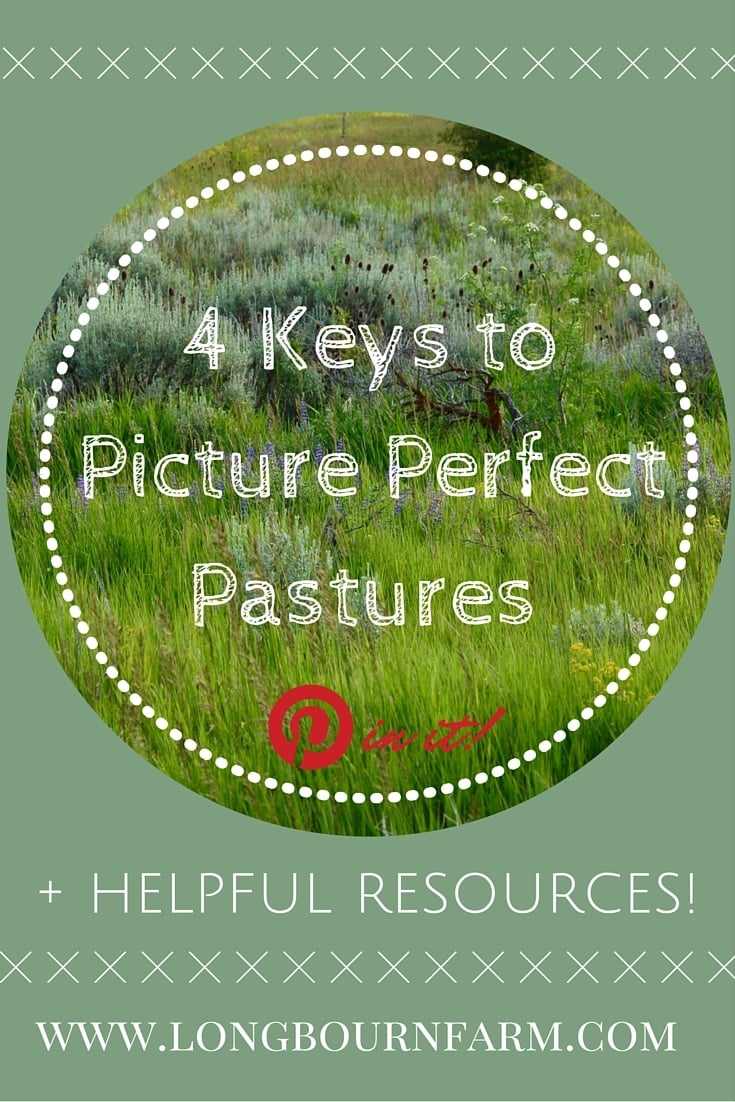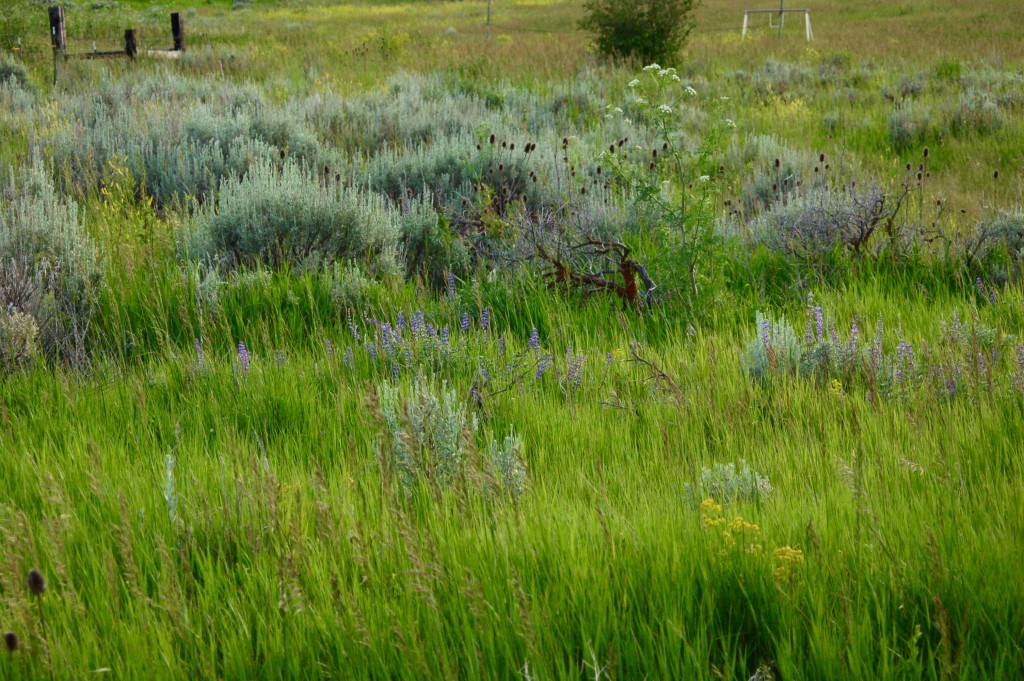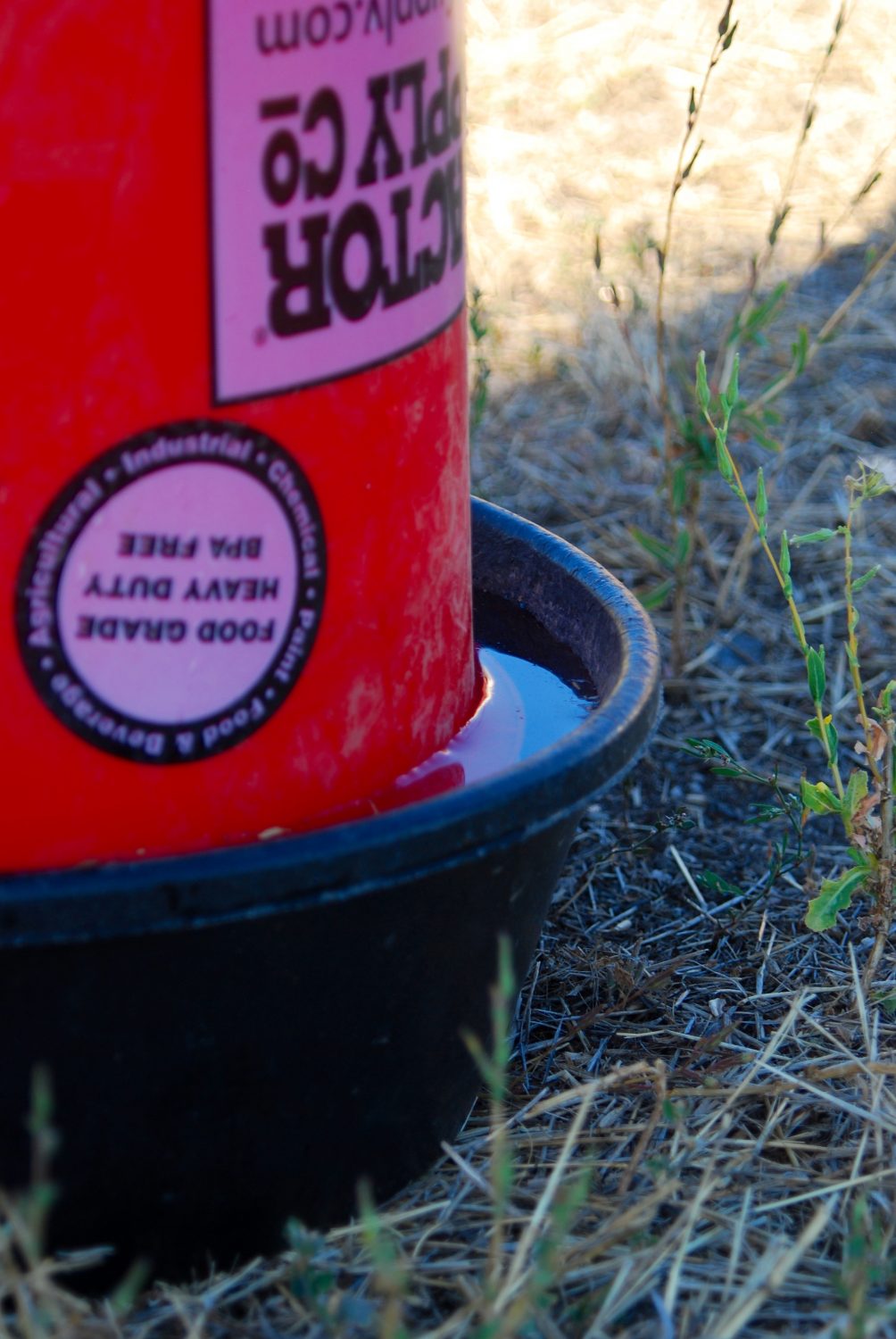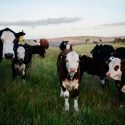4 keys to get picture perfect pastures on your small acreage! Get all the information you need to get started on the right foot with your own property.
Before we purchased our property, I knew what I wanted my pastures to look like. Rolling green acres dotted with various animals grazing, napping, and playing at their leisure. Rocks, a ditch, sagebrush and weeds were not what I had in mind. But that’s what we bought. Because I’m a sucker for a deal and a pretty barn. And I totally underestimated the amount of work getting the pasture back in order would take.
But misfortunes can become blessings if viewed with the correct attitude, right? Because our land in general was such a disaster, I was interested in taking classes on pasture and land management while I was still in school. I learned as much as I could about how to deal with our issues and what I’d need to do to fix them. If it had been perfect, I’d never have gained such a great education about pasture management!
Here are some of the most important things I learned:
Water
If you live in an area where water is a big deal {like the Intermountain West} then you need to make a choice. If you have water rights, you need to figure out how to you are going to use them. Do you have a riser on your property? Do you have a watering system in place? All this will cost you time and money.
If you’re not going to use your water rights or you are on dry-land, the grass species in your field or that you plant matters. Some grass species are more heat tolerant than others and will last longer than others without water.
If water isn’t an issue where you live – lucky! But you may have different issues, such as flooding. Flooding can also negatively impact your grass species – planting a grass that doesn’t mind having wet roots will be important so it can make it through the really wet times.
Weed Treatment
Weed treatment is something you need to take seriously on your property. Weeds spread fast and you need to use the appropriate products to take care of them so they don’t get out of control. Our property is basically the prime example of out of control weeds. They were out of control when we bought it and after a few attempts to rehab the pastures and spot treat, we have decided to just start over – weeds are a major reason for that.
If you don’t even know what weeds are on your property or how to take care of them, check out your local extension office. They can not only help you identify the weeds, they often can help you get better prices and provide rentals on the right equipment and spray you’ll need to use.
You’ll only treat your pasture once or twice a year – the spray you are using will dictate how often this happens. You need to follow the label instructions exactly – not following them is actually illegal. After you get your weeds in check – you may not have to do a full treatment more than a few times. Spot treating will probably be enough to keep things under control.
Fertilization
Along the same lines as consistent weed management, is a consistent fertilization program. The best way to find out what you’ll need to fertilize with is to get a soil test. Soil tests are easy to perform and not very expensive. I usually recommend getting a few spread out across your property so you know how you’ll need to adjust your fertilization program to match different areas on your property. Getting a soil test can also save you money – my soil only needs nitrogen so that is the only fertilizer I ever have to buy.
You’ll want to fertilize regularly. As your pasture grows, the plant will use up the nutrients so keeping to a regular schedule will be ideal. The best time to fertilize is typically in early spring when the plants are just starting to grow.
Grass Species
As we mentioned in the water section, grass species matters. In my area, cache meadow brome and tall fescue are the most popular because they are hardy, palatable, and regrow relatively quickly. Now, just because a certain species is a popular grass in your area doesn’t mean you have to use it. However, if you are new to grass species, definitely get yourself some advice and follow it. That will be the quickest way to success.
Whatever you plant won’t last forever, but the way you treat your pasture can make it last for a longer amount of time. Being sure to not overgraze and let your grass get established before putting animals on it will ensure that it lasts much longer. If a grass is really hardy, a stand can last for years and years. But there are always pros and cons to certain grass species. For example, tall fescue stands can last for a very long time here, but they tend to be less palatable to livestock species. Perennial rye grass is one of my favorite species {yes, having a favorite grass species is a thing – ok?}, but it only lasts about 3 years in our area.
There are a couple of solutions to these issues – my favorite solution is planting a mix of grasses. Eventually, the more palatable grasses will get eaten out of the stand and you’ll be left with one species, but in the beginning you can have a mix of quick establishing, hardy, and palatable. Another option is adding a legume to the mix. This can be a great addition nutritionally, but you’ll need to be sure you understand the appropriate seeding rates and potential dangers with bloat that are associated with legumes. Done right, they are wonderful. Wrong can be deadly.
Resources
Pin this farm tip on your Hobby Farming board to SAVE it for later! Follow Longbourn Farm on Pinterest for more great tips, ideas, and tutorials!
[et_bloom_inline optin_id=”optin_4″]







Leave a Reply